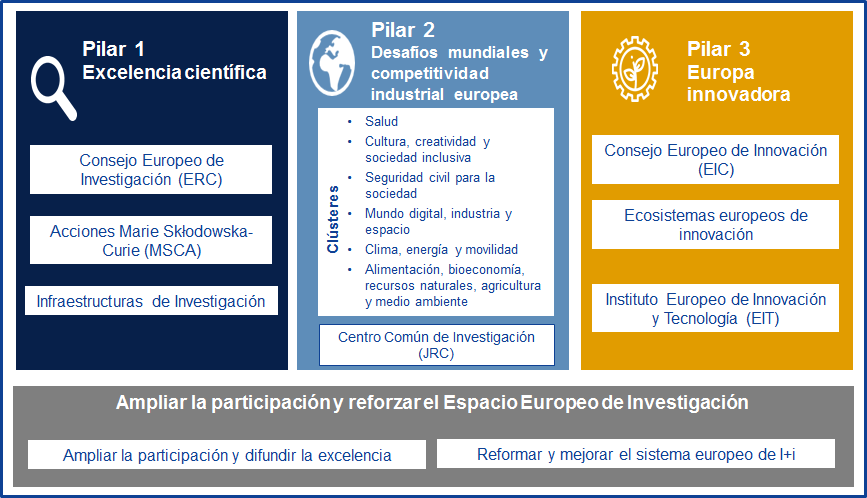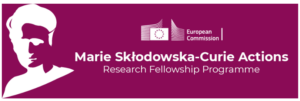Horizon EuropE
Horizon Europe is the European Union’s (EU) framework programme for research and innovation (R&I) for the period 2021-2027. The Horizon Europe Programme, like its predecessor Horizon 2020, will be the key instrument for implementing EU R&D&I policies. The general objective of the programme is to achieve a scientific, technological, economic and societal impact of EU investments in R&I, thereby strengthening its scientific and technological bases and fostering the competitiveness of all Member States (MS).
With a 95.517 billion budget for the seven-year period, Horizon Europe will be the Framework Programme with the largest budget to date, with the potential to generate significant economic, social and scientific benefits. Horizon Europe is estimated to generate 11 euros in Gross Domestic Product (GDP) gain for every euro invested, create up to 320,000 new highly skilled jobs by 2040 and consolidate Europe’s leadership in Research and Innovation. The Programme is designed with an investment mentality rather than as a purely funding instrument, and will include planning that will help the EU to realise the transition to a prosperous and sustainable future.
Horizon Europe: 3 pillars
The Horizon Europe Programme will have a three-pillar structure:

The pillar 1, Excellent Science, which, through the European Research Council (ERC) will fund investigator-driven and investigator-led frontier research projects. It will also support the professional development and training of research staff, through the programme’s international and intersectoral mobility activities. Marie Sklodowska-Curie (MSCA) and will invest in improving and optimising transnational access to the Research infrastructures world class
The pillar 2, Global Challenges and European Industrial Competitiveness will fund research into societal challenges, strengthen industrial technological capacities and establish missions with ambitious objectives geared towards major global challenges (health, climate change, renewable energies, mobility, security, digital, materials, etc.). In addition, it will support the creation of European partnerships with Member States and industry to work together on R&I. It will also include the Joint Research Centre (JRC) which will assist the EU and national governments in their decision-making by providing scientific evidence and technical support.
The pillar 3, Innovative Europe aims to make Europe a pioneering powerhouse in market-creating innovation and growing innovative SMEs through the European Innovation Council (EIC). It will support leading innovators, entrepreneurs, SMEs and scientists with ambitions to grow internationally. In addition the European Institute of Innovation and Technology (EIT) continue to foster the integration of research, higher education and entrepreneurship through the Knowledge and Innovation Communities (KICs).
These three pillars will be supported by a horizontal programme, Widening participation and strengthening the European Research Area (ERA),dedicated to assisting EU Member States in their efforts to develop their national research and innovation potential, and especially those states with lower R&I performance to improve their participation in Horizon Europe.
Individual Horizon Europe calls for proposals



